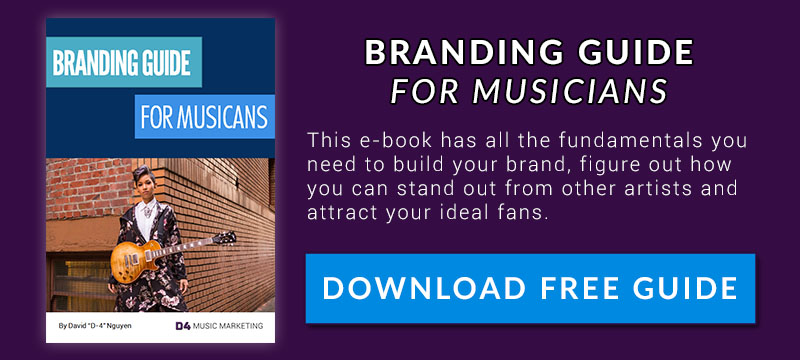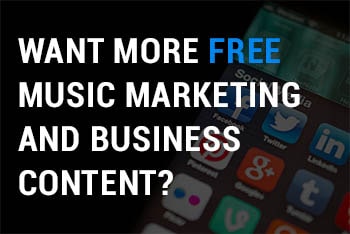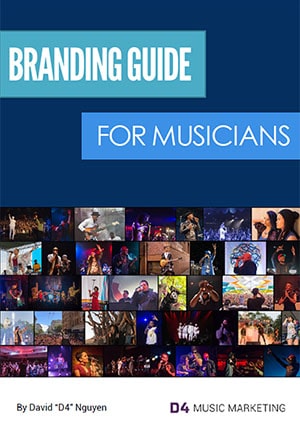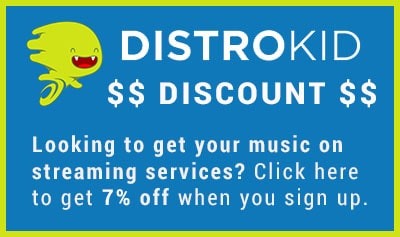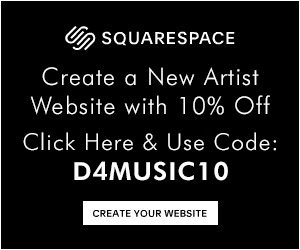
Have you ever felt that you’re not getting the exposure you had hoped for as a music artist? You’re not alone. In a highly competitive and over-saturated industry, tons of indie artists struggle to stand out of the crowd and get people’s attention long enough to build a loyal following. Even well-established indie artists need to constantly put themselves out there to stay relevant.
To stand a fighting chance to make it as an indie artist, you need to step up your branding and marketing game. Unfortunately, not all artists have backgrounds in business or marketing so it’s common to overlook the importance of branding. However, if your ultimate goal to sustain a career in music, you need to know how to find and nurture loyal life-long fans. Sure, good music is necessary to get people’s attention. But, it’s going to be your brand that will help you develop a deeper emotional connection with your target audience.
The main focus of this blog is to debunk the common myths behind branding that are holding indie artists back from their full potential. After all, the first step of branding is to identify it and understand why it’s so important for growing a loyal fan base.
Myth #1: I feel that branding confines me in a box and limits my potential

This is a big one because it exposes a very common mindset that small businesses generally have (I consider an independent artist as a small business), which is wanting to reach out and appeal to EVERYONE. Many indie artists believe that the best way to grow a fan base is to try to appeal to everyone or as many people as possible. The fact is, just like in small business, trying to market to “everyone” will attract no one.
If you are worried that giving your music a brand will limit your potential to reach the “masses,” don’t be. There is a fear of losing out and it’s totally understandable but as counter-intuitive as it sounds, I would argue a brand that turns certain people away is a good thing.
For example, imagine you are a gospel artist. You know your target market is going to be Christians. You know what symbolism to use in your branding and what the topics of your music are going to be. Chances are atheists are going to be repelled by your music and outward signals of your brand, but branding your music in this manner will improve your chances of being noticed by who you want to appeal to, Christians.
Instead of thinking of branding as a cage that limits or restricts, think of it as a spotlight that focuses and refines. If you want to get noticed, you have to use your brand as a spotlight so it can shine through the clutter and command attention from the specific people you want to reach in an oversaturated market.
The more specific or focused you can get in strategically communicating your brand identity and what you stand for, the better chance you will attract a fan base that truly connects with you. This implies that there will be people who will not be receptive to your music and brand, which is perfectly okay. Remember that not everyone has the potential to be your life-long fan. You want to appeal to certain types of people that will resonate with your music and relate to your story, message or lifestyle.
Myth #2: Branding feels like I have to be fake or someone I’m not

No one wants to be a poser and you don’t have to be.
I feel like this myth gets perpetuated because of the corporate marketing practices seen in the mainstream music industry. It’s happened before where certain artists are branded a certain way, that may not exactly reflect who they really are, just to sell more records and maximize profits for major labels. You see common trends in popular music and how artists present themselves and know that’s not how your music sounds or the persona you project. You might feel pressure to emulate the mainstream images in order to become successful.
In these cases, branding was used in a manipulative way. But, this does not mean branding requires you to be fake. It does show why managing brand image is important.
To me, the most successful brands are the ones that are the most authentic. These are the artists that can effectively communicate their core values and beliefs to the fans who are the most receptive to it without having to compromise dignity. Authenticity is what builds trust and invites people to make emotional connections with your brand. It’s a critical element to convert casual listeners to loyal fans.
In essence, branding isn’t about being someone you’re not. It’s more about being self-aware of what you represent and how you make people feel. At the end of the day, you want to attract people who are like you and share similar beliefs, values and perspectives so knowing how to be yourself is the best strategy.
Myth #3: Only popular artists or businesses need to worry about branding

This is obviously not true because branding matters regardless of how big or popular you are as an artist. I would argue that branding is most important earlier in your career as it sets the foundation for you to grow a loyal fan base.
We have to get out of thinking about brands within the narrow context of products and services. Let’s not forget that the concept of brands can be extended to individuals and even cities. Being an indie artist who is just starting off does not exclude you from being a brand.
By default, you are a brand whether you choose to acknowledge it or not. Not just as an artist, but even as a human being. It’s better to be aware of your brand so you can effectively build and manage it to attract your ideal fans. If your brand is not aligned with how you act and project yourself, you run the risk of not communicating a clear message to your target audience. It may even give off conflicting signals that turn people away.
Myth #4: I don’t need to build my brand because I make good music

I believe this myth comes from an old school way of thinking about business and marketing. There may be some degree of ego or pride attached to his mindset, but don’t let that hold you back either.
Making good music is obviously important in getting someone’s attention and it’s expected that the artist will keep putting out good music. The quality of your music will contribute towards creating a favorable brand image, but that’s only one variable. Your talent alone probably won’t carry you to success without branding. For instance, there are plenty of popular indie artists out there that are average rappers or singers. What helped them build a strong fan following is their brand. They offered something unique and different that fans felt they couldn’t get anywhere else.
Don’t get me wrong, it’s definitely possible that you can put out great music that just catches fire and goes viral without putting a conscious effort into branding. The chances of that happening are like winning the lotto. But even then, reach and exposure is only half the battle.
It’s one thing to get a bunch of people to like your music or acknowledge your talents. It’s a WHOLE other thing to connect with them on a deeper level so they actually become loyal, paying fans. The long term game is not just about reach, it’s about engagement and connections on an emotional level. This is not to undervalue having good music as I still believe it’s required. As subjective as “good music” even is, you will still need plenty of it that will resonate with those you want to target.
There have been plenty of artists that I have come across with good music that I like. But most of the time, their brand never resonated well enough with me to push me to the point of being a true fan, meaning I buy their records and see them live in shows. For the artists that I consider myself a loyal fan of, they do two things really well:
- They were able to effectively communicate their story and message where I was able to see myself as an extension of their brand and identity. Their music has served as a soundtrack for my life experiences.
- They engage and interact on social media and in person. Simple things like taking pictures and responding to fans make such a huge difference in strengthening your emotional connections with them.
Don’t neglect branding and marketing because you think you have a superior product. Branding isn’t something you actively choose to do or not do. It happens regardless so it’s best to make the most out of it and take control.
Myth #5: I have a logo and website so I’m good with branding

Your logo and website are definitely more tangible symbols that represent your brand, but it is not your brand itself. Standing on its own, a logo can give clues to what you are all about. However, without a reputation, prior interactions with an individual or shared meaning within a community or culture, the logo has little meaning in relation to your brand.
Branding goes beyond visual graphics and online presence. Its true value is in how it influences public perception or your brand image. Everyone is going to perceive your brand and story differently based on their own interpretations and experiences with you. Even the smallest of details are taken into account like your physical appearance, how you interact with fans, what you post on social media, how you act in your private life, who you associate with and even your world views. All these visual and behavioral cues help to shape a person’s perception of your brand. That’s what the logo and website help to reinforce. It serves as a reminder of the emotional response or attitude one has with your brand.
Because your brand is at the mercy of other people’s judgment, you want to do your best to control the narrative so your brand can continue to resonate with the people you are targeting. The key to branding is consistency and alignment, which means you can’t just set it and forget it. Things like your logo are brand constants that help to uphold what you want your brand to communicate or your brand identity. But ultimately, your brand image is defined by the public, which is out of your hands but not fully out of your control.
Another way to look at it is your brand is a promise or commitment to your target market. This means people can come to expect certain things from you and your music. As that relationship gets stronger through increased exposure and interaction with your brand, you earn a certain trust that reinforces this promise that you are who you say you are. Branding builds trust. After all, what good is a promise without the trust right? Having a strong loyal fan base is a sign that you are delivering on that promise; branding needs to be consistent in order to maintain that trust.
Myth #6: Branding is expensive

To be clear, there’s nothing extraordinary that you have to spend that makes branding expensive. This is because establishing a brand identity that reflects who you are and what you represent doesn’t cost anything. The process of branding is more about self-awareness and being consistent with your chosen strategy to reach your target audience.
There are things you can pay a designer to create, such as a logo or website, that represent your brand. It can be expensive but there are less expensive options available. For those looking for cheap services, try the online marketplace Fiverr that offers a wide range of digital services starting at $5. Because it’s a collection of freelancers (a lot of which are overseas), I can’t guarantee it’ll be the best quality, but it’s a great starting place for graphics or a new logo.
If you’re an independent artist just starting out, I put together this guide for a list of free essential tools indie artists need to get started.
With those resources, you should be able to get the assets that support your brand at little to no cost.
Once you set the foundation of your branding, the focus is on building up your reputation, setting expectations and being consistent with your message. This means engaging and interacting with your fans and consistently creating content to keep the attention on you. It’s about how well you connect and engage with your audience whether on social media, in person or through your music that builds your brand.
Conclusion
If you found this blog useful, check out my Branding Guide for Musicians eBook. I took my ‘Basics of Branding for Musicians’ blog series, rewrote parts of it and combined them into one convenient guide. I also included a branding workshop section to provide further help in establishing your brand that you can only find in this eBook.
